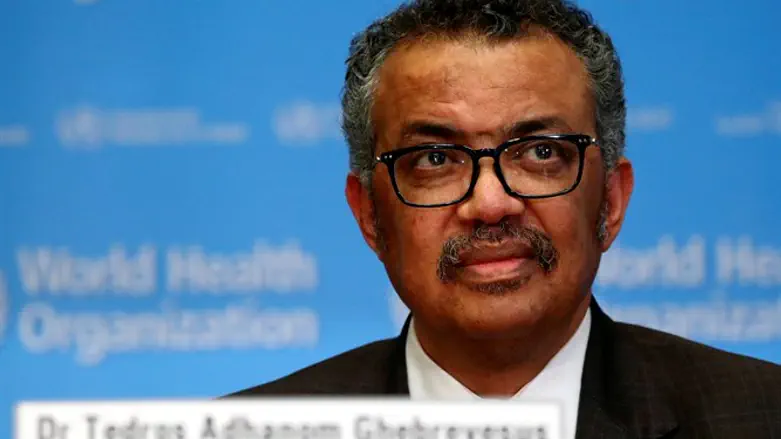
"In most of the world the virus is not under control. It is getting worse," the head of the World Health Organization has warned.
Dr. Tedros Adhanom Ghebreyesus said at a WHO briefing that the virus would infect many more people if governments did not start to "take a comprehensive approach based on fundamental public health measures - find, isolate, test and treat cases, and trace and quarantine contacts."
"As countries struggle with this unprecedented threat, they face a delicate balance between protecting their people and maintaining essential health services, while minimizing social and economic damage, and respecting human rights.
"There are no easy answers. But some nations have brought the virus under control. We must learn from their experience and follow their lead.
"As a global community, we must learn from both the positives efforts made to suppress the virus and the challenges that have emerged from this global hardship.
"It has been made devastatingly clear that the best defense against health emergencies is a strong health system. A strong health system is a resilient health system.
"That is why national governments & local governments need to invest in preparedness & essential public health functions. Universal health coverage is essential to our collective global health security. 'Health For All' was the whole mark for WHO for the last 70 years.
"After every outbreak in recent history, there are lessons that we have learned to protect ourselves better. And the world has made some progress in pandemic preparedness. But it is also clear that we have much more work to do.
"For years, many of us warned that a catastrophic respiratory pandemic was inevitable. It wasn't a question of if, but when. Still the world wasn't ready Our systems weren't ready Our communities weren't ready Our supply chains collapsed It's time for honest reflection"
"All of us must look in the mirror – WHO, every Member State & all involved in the response. We're in the midst of the battle of our lives & we have to do better. Not just now, but for the future. These threats will never stop & in all likelihood they will get worse.
"We need to look at the performance of our national surveillance and response systems, how we shared information with our communities, and whether we earned their trust, how we governed, and whether our global health architecture is fit for purpose.
"In May, the world came together for the first virtual World Health Assembly. 194 Member States passed a landmark resolution, which recognized the leadership role of WHO and the role of the UN system in coordinating the comprehensive global response.
"It called on Member States to implement a whole-of-government and whole-of-society approach to ensure a more coherent, fairer and effective global response. It called for the fair distribution of vaccines, diagnostics and therapeutics.
"In line with our call for an after-action review, Member States agreed that WHO should initiate an independent and comprehensive evaluation of the lessons learned from the international health response to Covid-19.
"This is a time for self-reflection, to look at the world we live in and to find ways to strengthen our collaboration as we work together to save lives and bring this pandemic under control," he said.